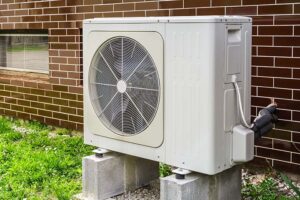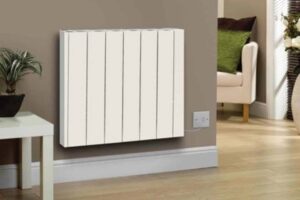Table of Contents
Is your radiator suddenly sounding like a rock band rehearsal? Don’t worry; we’ve got you covered. Radiators making noise can be unsettling, but understanding their causes and how to address them can bring peace back to your home. Let’s delve into the world of radiator noises and discover how to silence them effectively.
Your radiator isn’t supposed to be the centre of attention with its clanks, hisses, and bangs. Yet, when it starts making noise, it can disrupt the tranquillity of your home. Fortunately, most radiator noises are fixable with some know-how and elbow grease.
Understanding Radiator Noises
Common Causes of Radiator Noises
Radiator making noise typically stems from issues with trapped air, loose components, or sediment buildup. Air bubbles in the system can cause gurgling sounds, while loose pipes or fittings can lead to rattling or banging noises. Sediment accumulation can also create blockages, causing irregular flow and resulting in various noises.
Types of Radiator Noises
Radiator noises manifest in different forms, including:
- Banging
- Clanking
- Hissing
- Gurgling sounds
Identifying the type of noise can provide insights into the underlying issue, making troubleshooting easier.
Why is My Radiator Gurgling?
If your radiator is making a loud noise, it usually means there is air in the system, or the water velocity in the system is too high. Below are some causes of these issues:
Water Velocity
If water is flowing too fast, it can cause turbulence and disrupt the radiator making noise or noise as it flows through the radiator’s electrical and water pipes. This may be due to the shape of the pipes. In old equipment or systems with high-speed pumps, noise may occur due to the pump carrying more water than the size of the system to which it is connected.
System Pipework Configuration
If you have an open air system, there may be a problem with the way the ducts are connected. If the ducts are not installed correctly, air will enter the system, which will cause noise in the system and engine when the air is turned off. The only way to rectify this is to get a professional to re-pipe the system to prevent this from happening again.
Corrosion Within the System
If your system has corrosion within it due to the reaction between dissimilar metals and water, this process can produce gas, which, just like air, can cause noise and other system issues. This condition can be corrected by flushing the system and treating it with chemicals to prevent further occurrence.
Low System Water Pressure
Low water pressure in the central heating system can cause air and noise in the system. Check for leaks and repressurise your system. If the issue persists, you will need to contact a professional heating engineer.
Why is My Radiator Banging?
A number of factors, including:
- Loose or faulty components.
- Water flow issues
- Air in the system
Why is My Radiator Hissing?
This could be caused by an open valve allowing air to be released from the radiator. To stop this, simply close the valve. If this does not eliminate the radiator making noise, contact a qualified Gas Registered Technician to replace the bleed valve.
Why is My Radiator Making Noise?
There are three likely reasons why your radiator would make a whistling sound. It could be that the water flow rate is high, there’s limescale on your radiators or the drain valve is open.
Fixing the water flow rate to your radiator is not something you can do, but to start with, you can try opening the valve fully and setting it at its highest position to see if this sorts out the problem. If not, and you’ve tried the other steps below, and the radiator is still making noise, it may be time to call a heating technician. In hard water areas, limescale tends to accumulate in radiators. This results in limescale buildups that cause hotspots, leading to overheating.
To reduce scale in your heating system, you can ask your heating engineer to install a de-scale or boiler filter or perform a manual ‘power flush’ of your heating system, which will stop your radiators from working to eliminate them.
Finally, radiators making noise when heating on may be caused by an open valve. The valve is usually located on the outside of the valve that controls the temperature of the boiler, sometimes next to the heated towel rails. Try closing the valve by turning the cap, if it opens this will stop the sound coming from the radiator, if that is the cause.
Why Does My Radiator Making Noise Like a Water Running?
That noise you hear sounds like water dripping or even running, but it might also be nothing else but air being trapped within. Water is what heats radiators, and it should not be audible in the process, so most probably, there is some air inside of them that prevents water from going through radiator pipes effectively.
Why Does My Radiator Click?
The common noise you can get from a radiator or heated towel rail is clicking and creaking, which is actually quite normal. This clicking sound can most likely be explained by metal expansion after hot water pours into it. Similarly, as the radiator loses its heat, the metal shrinks due to cooling off the hot water.
Diagnosing Why Radiator Making Noise
Visual Inspection
Start by visually inspecting your radiator system for any obvious signs of damage, leaks, or loose components. Look for rust, corrosion, or water stains, indicating potential issues that require attention.
Listening for Sounds
Listen carefully to noises that come from your boiler. Observe when the sounds occur—whether during heating turn-on or running time—or when cooling starts happening so as to establish where the problem originates.
Testing for Leaks
Perform a leak test by checking for any puddles or drips around the radiator or its pipes. Leaks can contribute to air entering the system, leading to noise problems.
Fixing Common Radiator Noises
Bleeding the Radiator
Releasing trapped air through radiator valves using a radiator key is one of the methods used to address radiator making noise. To avoid leakage and ensure better performance, the bleeding should be done with care.
Tightening Loose Components
It is important to check for any loose pipes, valves or fittings and tighten them up where necessary. The clattering or banging sounds that come from these places can easily be dealt with by tightening those items which are not firmly anchored.
Flushing the Radiator
Accumulation of sediments in a radiator may obstruct the water flow, causing noise and inefficiency. One way of removing sediment from it is by flushing the radiator out can help fic radiator making noise.
Seeking Professional Help
If DIY solutions have failed to resolve your problem, this would be a good time to involve experts in this area. This will ensure that your heating system functions properly because experienced technicians are capable of diagnosing even complicated problems associated with radiators.
Preventing Future Radiator Making Noise
Regular Maintenance
Keep your heating system by having an annual ritual of bleeding the radiator as well as checking for leaks and other irregularities here and there throughout its life cycle, thus averting any noise related problems in future. Be proactive in taking good care of this essential part of your home’s heating system so as toward off costly repairs later on down the road.
Using Quality Coolant
Using high-quality coolant can help prevent corrosion and sediment buildup in your radiator, prolonging its lifespan and reducing the likelihood of noise issues and can be solution of why your radiator making noise.
Conclusion
Radiator making noise is a concern in heating systems, but they can often be resolved with simple troubleshooting steps. If you hear noise coming from your radiator when it’s on, it could be due to trapped air, sludge buildup or loose parts. Regularly bleeding your radiators, checking for sludge buildup, and ensuring all components are securely fastened can help prevent and address these noises. If the issue persists, it’s advisable to seek assistance from a heating engineer for diagnosis and resolution. By staying proactive in maintaining your heating system, you can enjoy comfort and energy efficiency for years to come.



